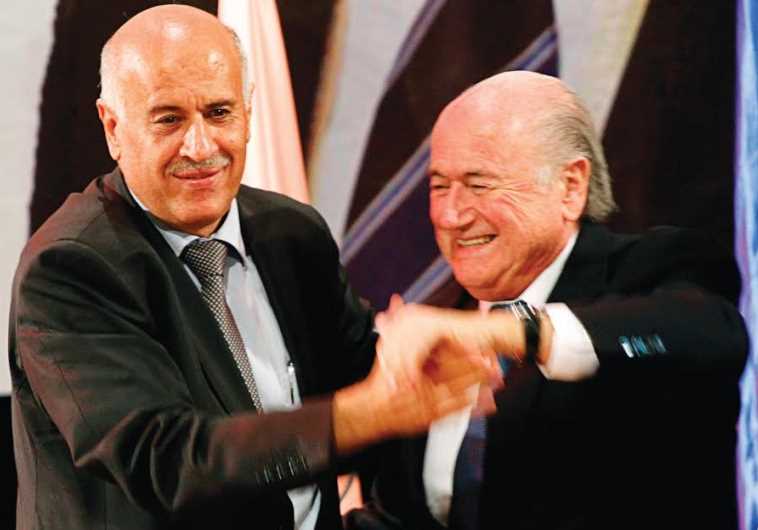My word: Palestinians, football, fair play and fouls
Being born and raised in Britain doesn’t make me an expert on football, but it gives me a good idea of what is right and wrong on the sports field.
 Palestinian Football Association President Jibril Rajoub (L) and FIFA President Sepp Blatter
Palestinian Football Association President Jibril Rajoub (L) and FIFA President Sepp Blatter